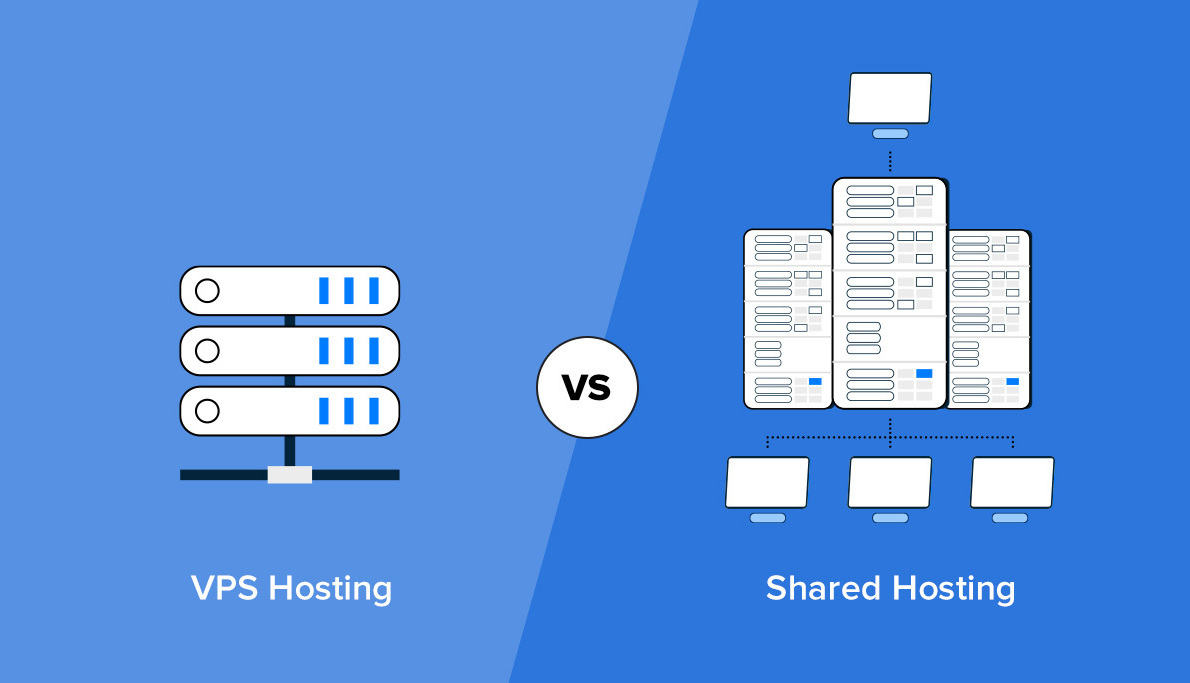Hosting vs VPS: Which One is Right for You?
When it comes to building a website, one of the most crucial decisions you’ll have to make is choosing between traditional hosting and a Virtual Private Server (VPS). Both options have their own set of advantages and disadvantages, so it’s important to understand the differences and how they can impact your website. In this article, we’ll explore the key differences between hosting and VPS, and help you decide which option is right for you.
Hosting: What Is it and How Does It Work?
Shared hosting is the most common type of hosting that most websites use. With shared hosting, your website is hosted on a server that is shared with other websites. This means that resources such as CPU, RAM, and storage are shared among all the websites on the server. Shared hosting is typically the cheapest option, making it ideal for small websites or blogs with low traffic.
However, shared hosting can have its limitations. Since resources are shared, your website’s performance can be affected by other websites on the same server. If another website experiences a spike in traffic, it can slow down your website as well. Additionally, shared hosting may not offer as much flexibility and customization options as other hosting solutions.
Virtual Private Server (VPS): What Is it and How Does It Work?
A Virtual Private Server (VPS) is a step up from shared hosting. With a VPS, your website is hosted on a virtual server that mimics a dedicated server. This means that you have more control over your server environment, including the ability to install custom software and configure settings to your liking.
One of the main advantages of VPS hosting is dedicated resources. Unlike shared hosting, a VPS guarantees a certain amount of CPU, RAM, and storage that is dedicated solely to your website. This means that your website’s performance is less likely to be impacted by other websites on the server, making it a more reliable option for websites with higher traffic or resource-intensive applications.
How to Choose Between Hosting and VPS?
When deciding between hosting and VPS, there are a few key factors to consider. First, think about your website’s size and traffic volume. If you have a small website with low traffic, shared hosting may be sufficient. However, if you expect your website to grow or have high traffic, a VPS may be a better option.
Next, consider the level of control and customization you need. If you require more flexibility to install custom software or configure server settings, a VPS is likely the best choice. On the other hand, if you prefer a more hands-off approach and don’t need as much control, shared hosting may be more suitable for you.
Conclusion
Ultimately, the decision between hosting and VPS depends on your website’s specific needs and budget. Shared hosting is a cost-effective option for small websites or blogs, while VPS hosting offers more control and dedicated resources for websites with higher traffic or specific requirements. Consider your website’s size, traffic volume, and customization needs when choosing between hosting and VPS to ensure you make the right decision for your website.
Are you still unsure about whether hosting or VPS is right for you? Contact us today for expert advice and personalized recommendations tailored to your website’s needs. Our team of hosting professionals is here to help you make the best decision for your website’s success.
